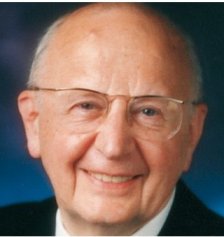 I’m reading a lot of Rudolf Bultmann these days, as part of a particular research project, and as much as I try to like Bultmann – even with David Congdon’s help – I just can’t. In the end, I agree with Martin Hengel’s verdict on Bultmann:
I’m reading a lot of Rudolf Bultmann these days, as part of a particular research project, and as much as I try to like Bultmann – even with David Congdon’s help – I just can’t. In the end, I agree with Martin Hengel’s verdict on Bultmann:
After I became Stiftsrepetent [i.e., a student instructor] in 1964, my colleagues at the instructors’ table (with the exception of my friend Otto Betz, who had already then recognized the significance of the Qumran texts) appeared to me to be “drunk from the sweet wine from Marburg.” In hearing the new theses I could time and again only shake my head: a radical synoptic criticism on the basis of “form criticism,” an unmessianic Jesus of whom Paul knew hardly anything more than the “that of his having come,” the radical separation between “Palestinian” and “Hellenistic community, early Christianity as a “syncrestistic religion” profoundly influenced by a pre-Christian Gnosis and oriental mysteries, Paul and John as opponents of Jewish apocalyptic and as the first “demythologizers,” Luke by contrast as a contemptible “early catholic” and above all a fundamental devaluation of all “objectifying” historical knowledge and behind it all a latent Marcionism, for which the term “Biblical theology” was almost already a swearword. Although I, being fascinated by the early church and ancient history, had more of an inclination to devote myself to church history, I began, to a certain extent as a protest against these “new insights,” a New Testament dissertation which dealt with Judaism as the birthing ground of Christianity (Zie Zeloten [AGSU 1], Leiden 1961). It was the then so fashionable theses of R. Bultmann, which dominated the field but were questionable in my judgment, that brought me to the New Testament.[1]
[1] Martin Hengel, “A Young Theological Discipline in Crisis,” in Earliest Christian History, eds. M.F. Bird and J. Mason (WUNT 2.320; Tübingen: Mohr/Siebeck, 2012), 462.











